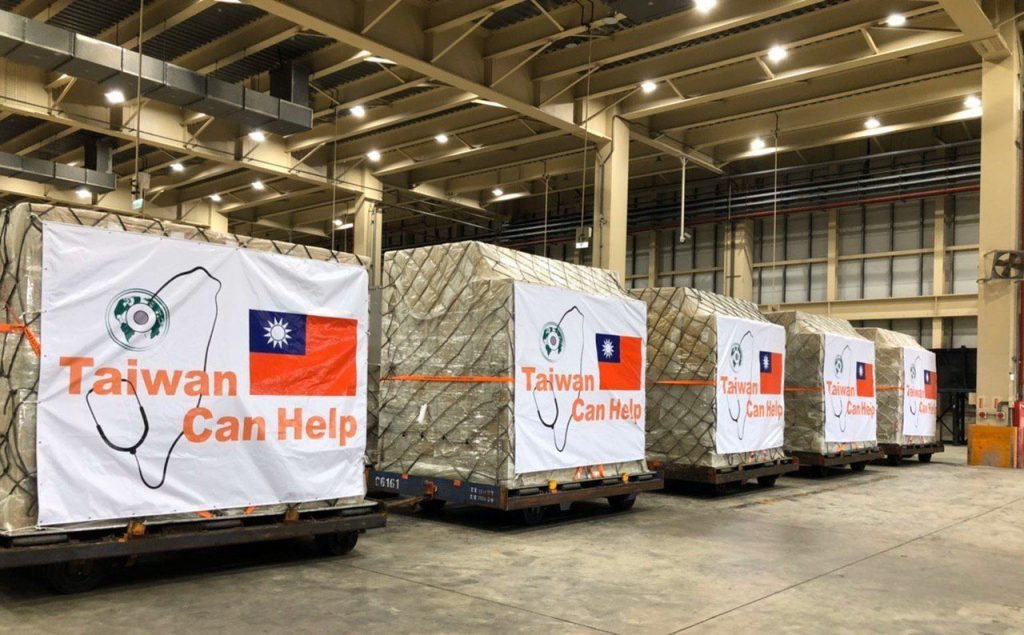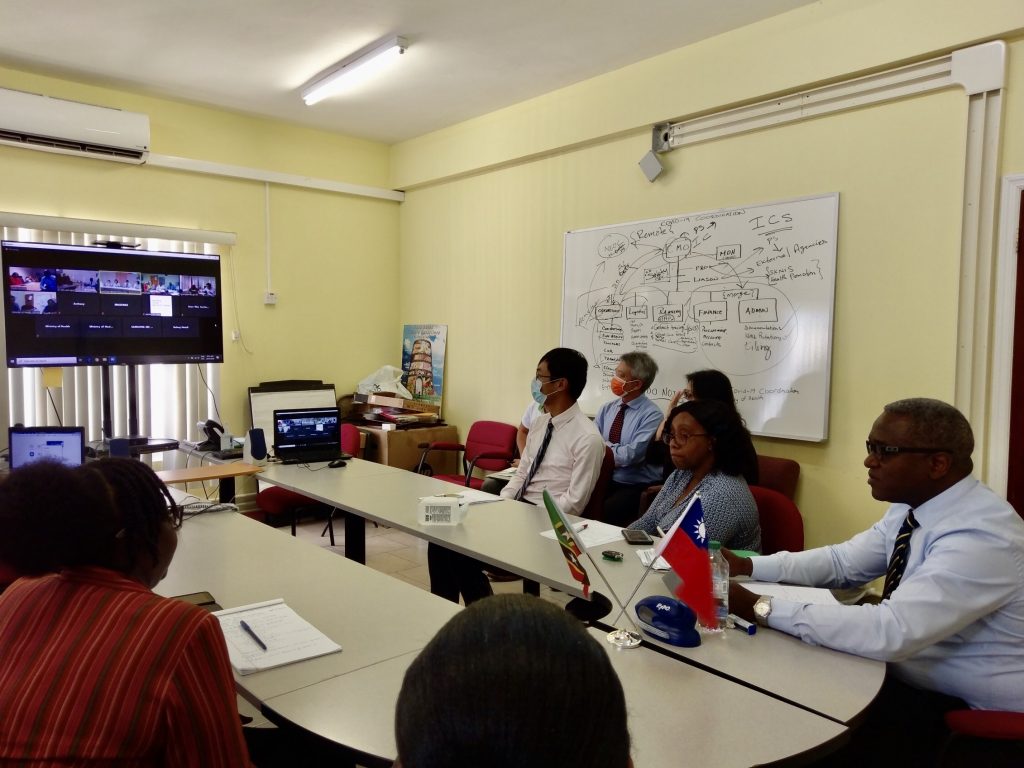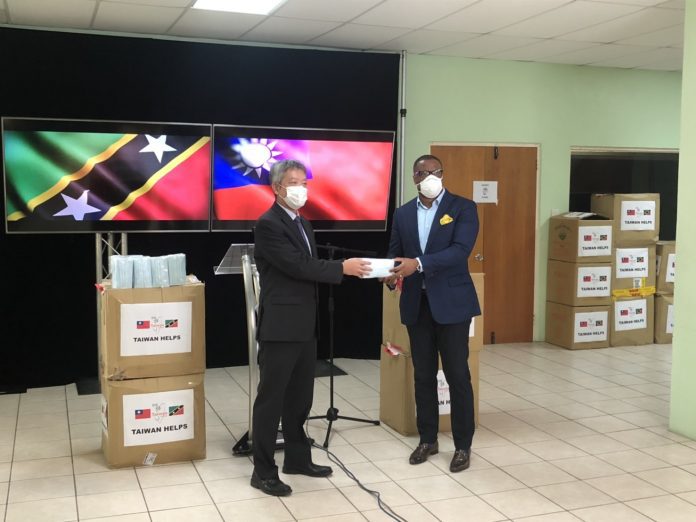BASSETERRE, St.Kitts (Friday 24th April 2020) – Regarding the issue of the novel coronavirus (COVID-19) pandemic, the Republic of China (Taiwan) has made its independent mark on the global scale in tackling the disease early on.
Taiwan, however, is not a member of the World Health Organization (WHO) which continues to be a widely debated topic.
“The right to health is a fundamental part of our human rights. If it is indeed WHO’s mission to ensure the highest attainable standard of health for every human being, then WHO needs Taiwan just as Taiwan needs WHO. “
The above comments are of resident Taiwanese ambassador Tom Lee who was recently contacted by this media house in an effort for him to talk about his country’s success and challenges on the subject including assistance to St.Kitts-Nevis.

At the time out the press outreach, he shared that the embassy has been following the rules regarding the State of Emergency set by the St.Kitts-Nevis government.
See the full interview below:
REPORTER: Tell me about Taiwan’s response to the COVID-19 pandemic. I am aware that the Republic of China (Taiwan) has been a model in this regard even before the disease reached the category of being a global issue.
AMBASSADOR LEE: Taiwan’s success in combating COVID-19 is a combination of efforts by medical professionals, government, private sector and society at large. On the very last day of 2019, authorities in Taiwan began assessing passengers arriving on direct flights from Wuhan, checking for symptoms of fever and pneumonia. Soon after, on the 20th of January, our Government activated the Central Epidemic Command Center (CECC) to directly coordinate efforts by different ministries and agencies. CECC has overseen crucial measures including border control, fighting misinformation, and providing financial relief for businesses.
Moreover, Taiwan has been widely praised in its approach to utilize technology, big data and approved science to contain COVID-19. For example, Taiwan has established an electronic system for entry quarantine, which allows passengers with a local mobile phone number to fill in health information via mobile phone. A health declaration pass will then be sent to them via a text message. This is connected to the community care support management system, which allows government agencies to provide care services and medical assistance. Individuals’ travel history is now stored on the National Health Insurance (NHI) card to alert physicians to possible cases and prevent community transmission. For those undergoing home quarantine or isolation, the government is working with telecom operators to allow GPS tracking of their locations. Quarantine offenders are subject to fines or mandatory placement according to relevant laws and regulations, so as to prevent transmission.
REPORTER: To date, what is the situation on the ground in Taiwan including ongoing measures?
AMBASSADOR LEE: Latest statistics from the CECC reveal 422 confirmed cases of COVID-19 in Taiwan as of April 20, with six deaths. Two hundred and three (203) patients have been released from isolation. Taiwan’s Central Epidemic Command Center announced new disease prevention measures April 18, the latest in a series of moves aimed at safeguarding the country amid the ongoing coronavirus pandemic. The new rules require inbound travelers who have visited Southeast Asia in the last 14 days to fill out health declaration and quarantine notice forms before boarding flights to Taiwan, the CECC said, adding that the measures take effect April 21 at midnight local time.
REPORTER: Now, can you tell me about Taiwan’s diplomatic helping hand extended during the pandemic to its allied Caribbean countries (and further) and in what areas?
AMBASSADOR LEE: In addition to donating essential medical supplies and helping procure medical devices, Taiwan has been doing its best to share experiences and know-how on fighting against COVID-19 with our allies in the Caribbean, Latin America and also other like-minded partners.
For instance, a five-party video conference was organized by our Ministry of Foreign Affairs to share COVID-19 prevention measures with our four Caribbean diplomatic allies, including St. Kitts and Nevis, St. Lucia, St. Vincent and the Grenadines, and Belize on March 30.
REPORTER: Apart from the masks donation, specifically for St.Kitts-Nevis what else can be expected in partnership with the government of Taiwan in the near future?
AMBASSADOR LEE: In addition to the 40,000 masks donated on April 15, 6 thermal detectors (thermal imaging cameras), a batch of thermometer temperature guns are on the way from Taiwan and will arrive in SKN shortly. Our Embassy has also assisted the Ministry of Health (MOH) to have Taiwanese experts review SKN’s official COVID-19 Preparation Plans to provide constructive feedback.
REPORTER: Although Taiwan is not a member of the World Health Organization, is there any working relations with the organization at this time? Also with the independent accomplishments made in the area of health especially regarding COVID-19, has Taiwan earned the right to be embraced by WHO?
AMBASSADOR LEE: The right to health is a fundamental part of our human rights. If it is indeed WHO’s mission to ensure the highest attainable standard of health for every human being, then WHO needs Taiwan just as Taiwan needs WHO.
Despite public statements earlier this year by Dr. Michael Ryan, Executive Director of the WHO Health Emergencies Programme, that Taiwan had been fully engaged and fully aware of all the developments on COVID-19, Taiwan’s participation remains extremely limited. Taiwan is not only prevented from obtaining firsthand information concerning the disease in a timely manner, but also faces hurdles in sharing its Taiwan Model on epidemic prevention with other countries.
Due to political factors, however, Taiwan has not been invited to attend the World Health Assembly since 2017. From 2009 to 2019, Taiwan applied to take part in 187 WHO technical meetings. It only received invitations to 57 of these, meaning that 70 percent of applications were rejected. WHO takes a long time processing Taiwan’s applications, and often does not even provide a reason when rejecting applications.

Even though Taiwanese experts can take part in the clinical management and infection control networks related to epidemic prevention, WHO has not invited Taiwan to take part in its laboratory network. And even though WHO has included one Taiwanese expert in the International Health Regulations Expert Roster, it never invited the expert to attend related meetings. This is most clearly reflected in its current handling of the COVID-19 pandemic.
Meanwhile, owing to political considerations, WHO cannot certify vaccines produced by Taiwan, affecting Taiwan’s research and development endeavors and also creating obstacles for Taiwan to share vaccines with countries that need them. These facts show that Taiwan’s inability to participate in WHO not only jeopardizes the right to health of the 23 million people of Taiwan, but also disadvantages people from other countries that could benefit from Taiwan’s assistance and experience.
As President Tsai said during a recent interview with TIME Magazine, although Taiwan has been unfairly excluded from the WHO and the U.N., we remain willing and able to utilize our strengths across manufacturing, medicine and technology to work with the world.




